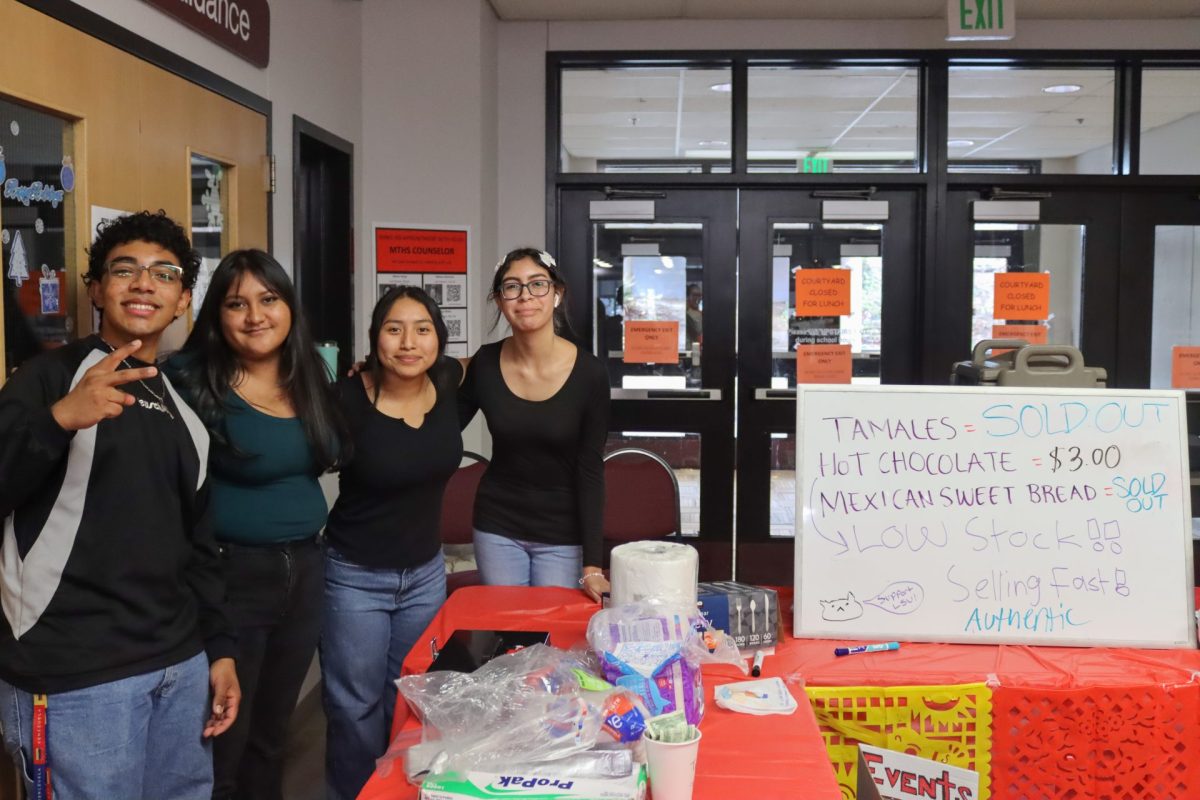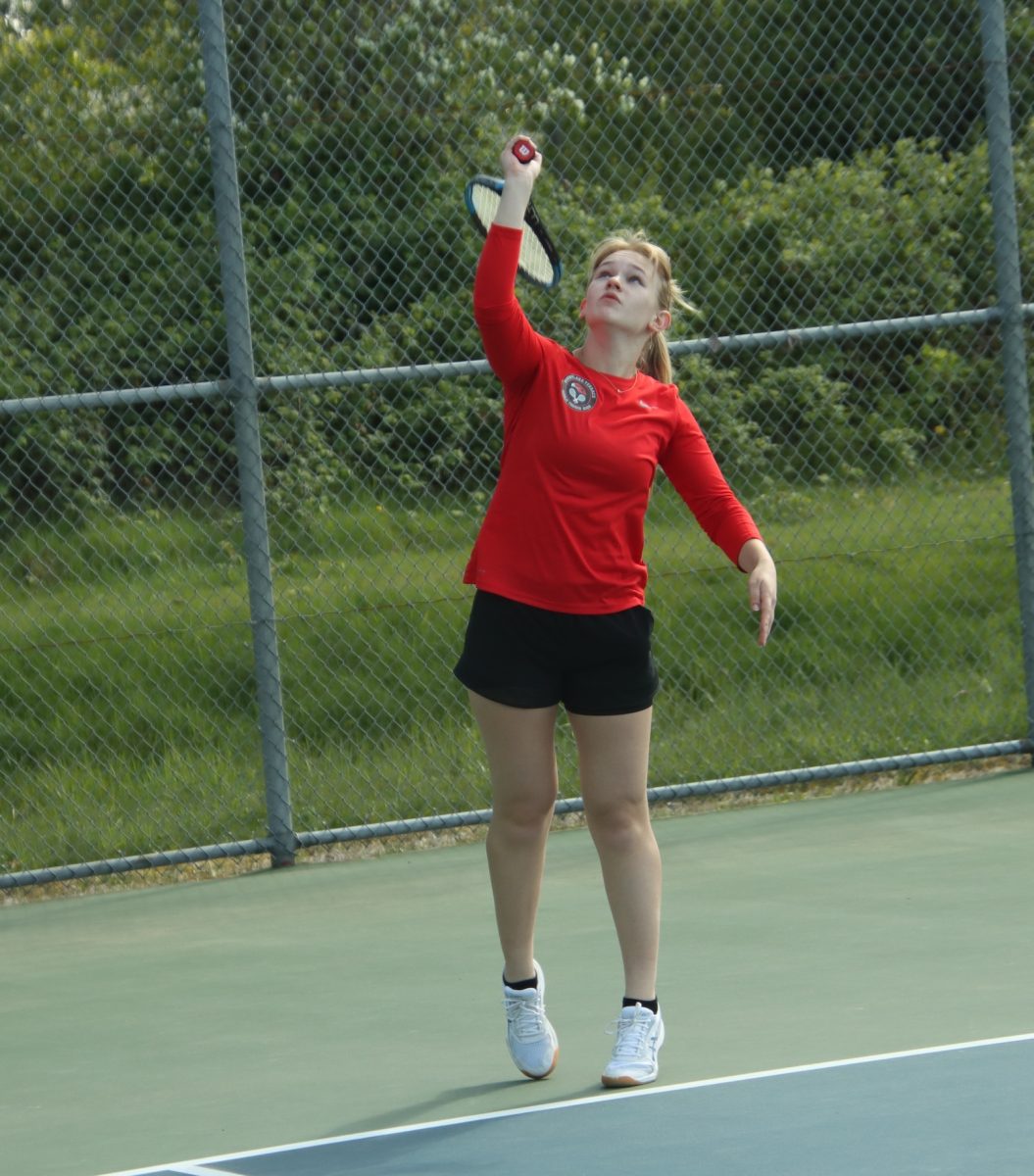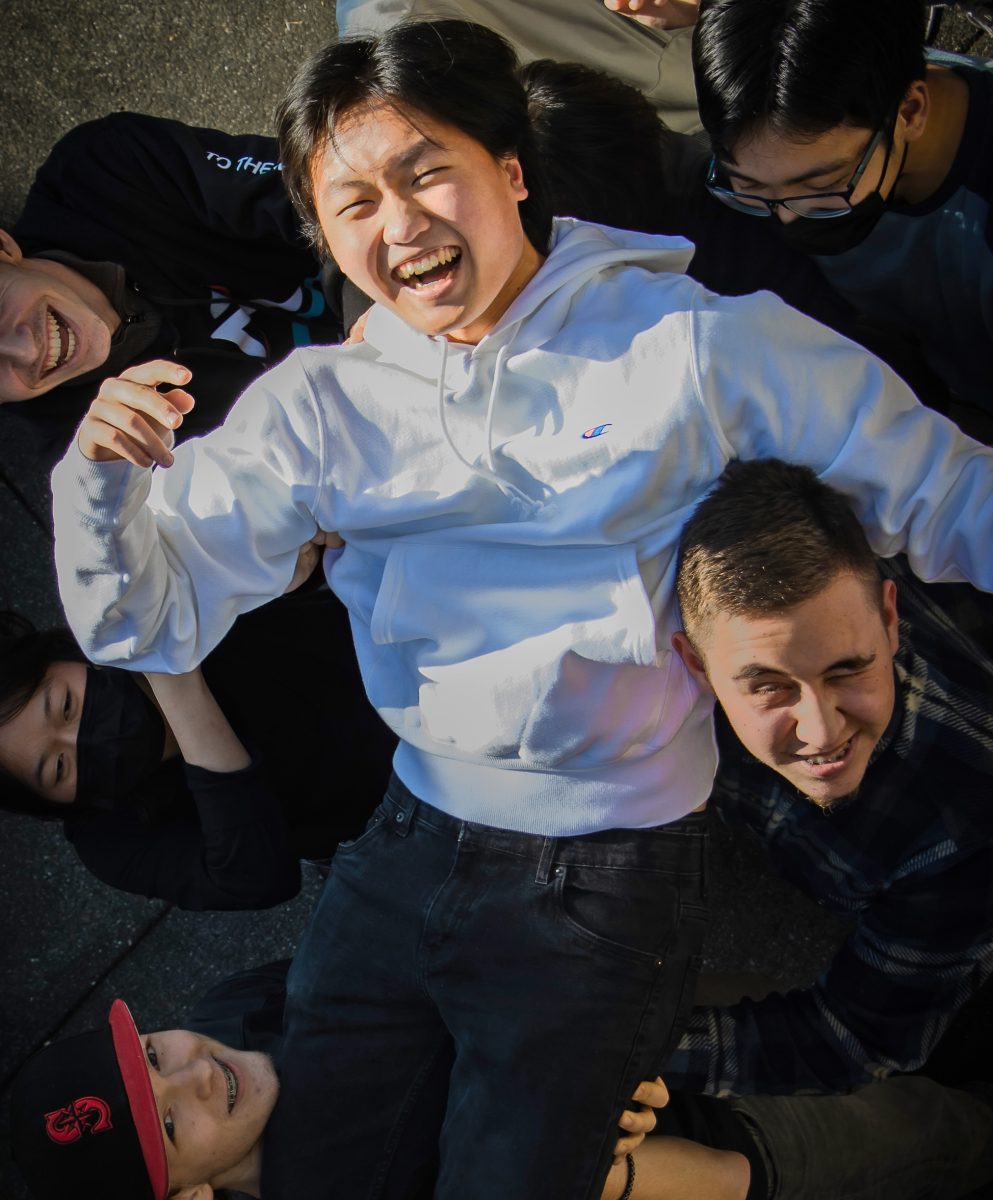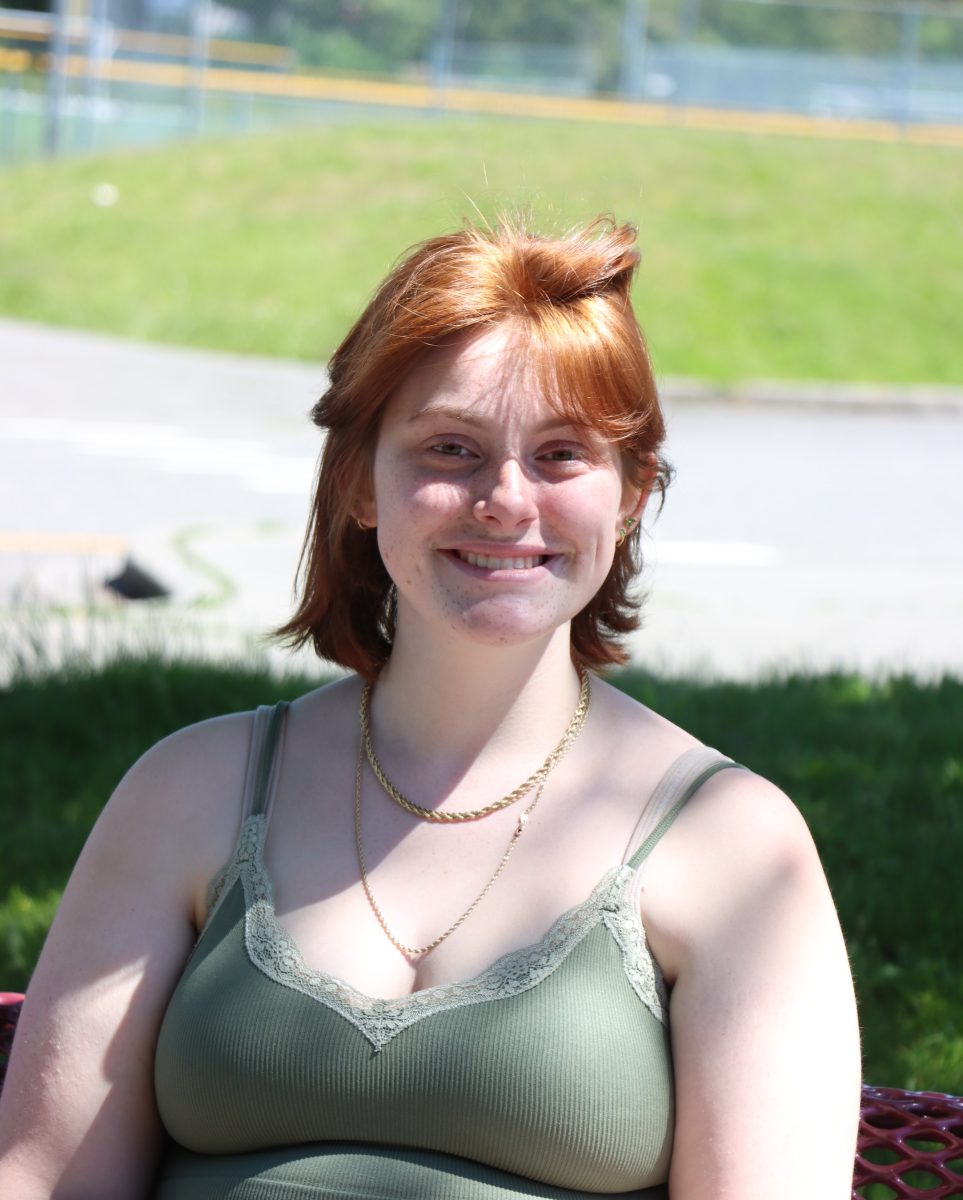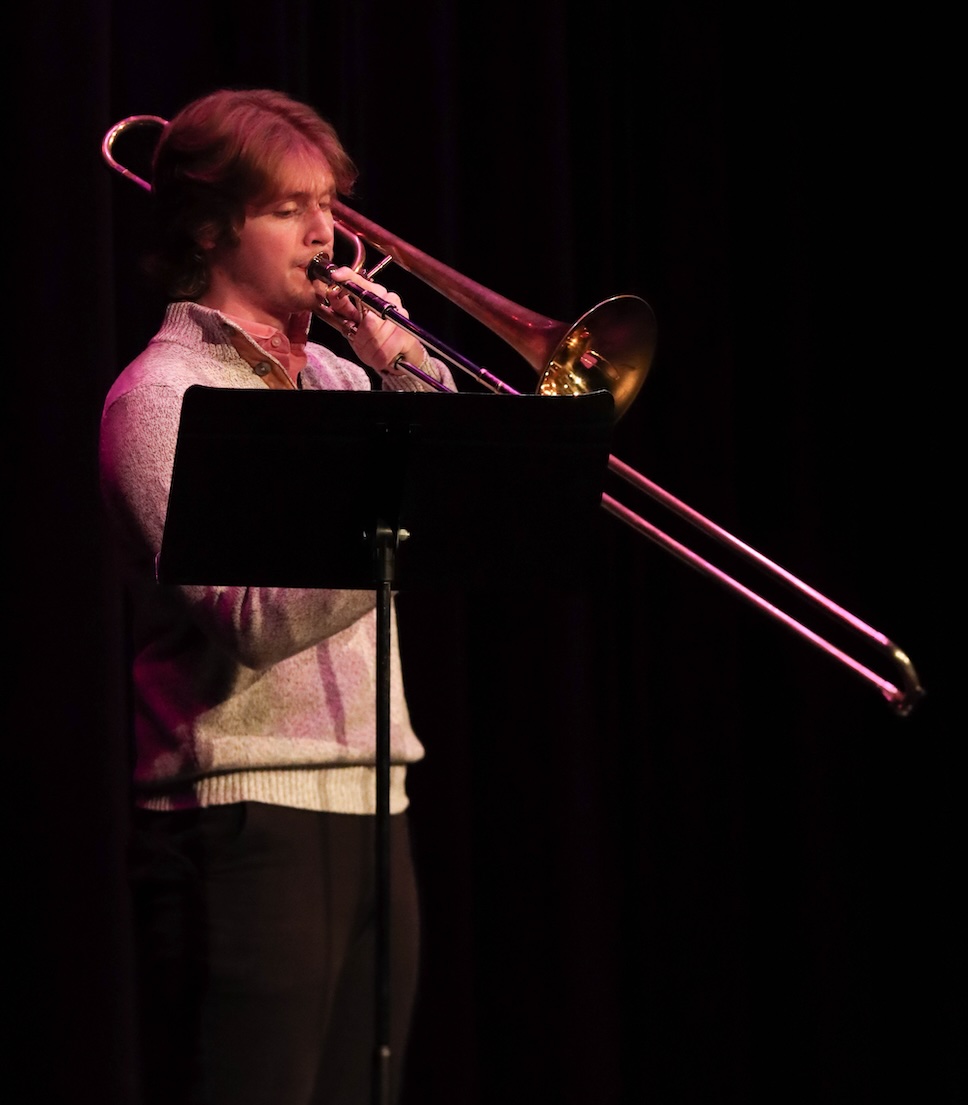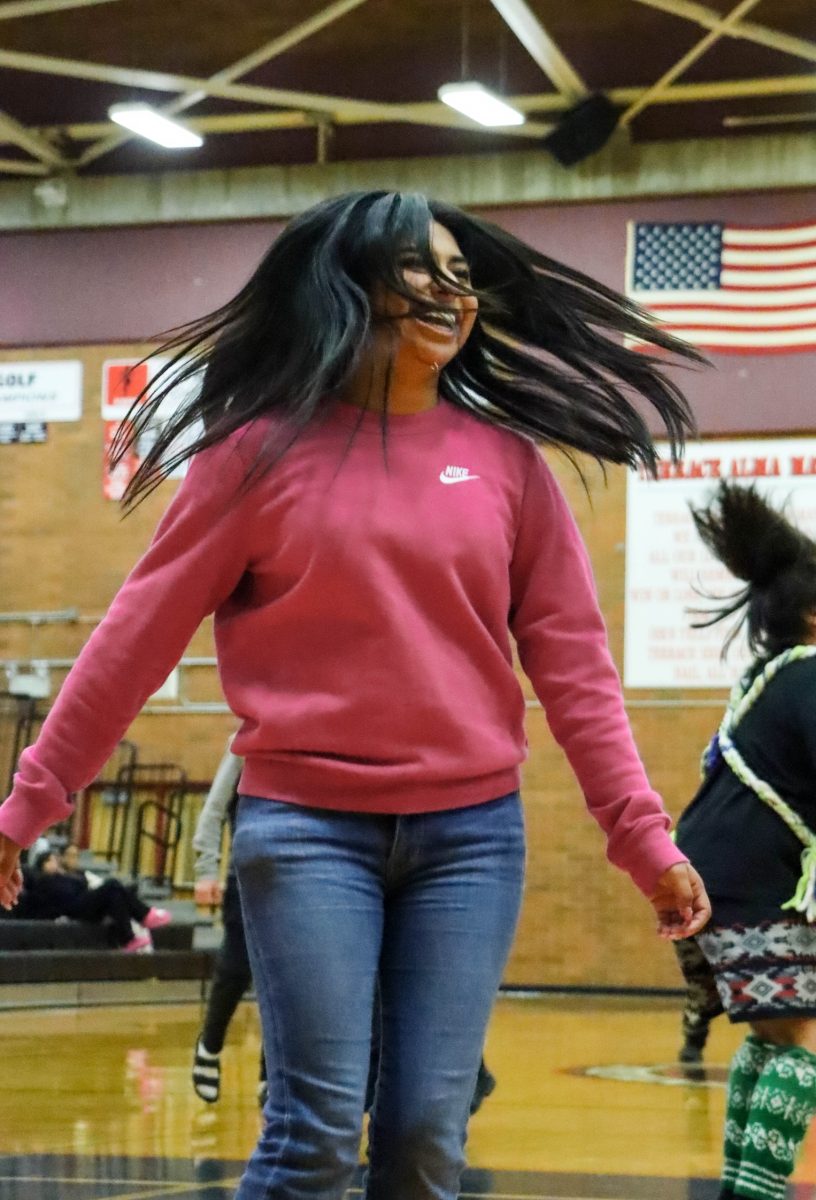It wasn’t until after he graduated that MTHS alumnus Michael Boxley decided on his career as a behavior coordinator. However, it was in Terrace classrooms and hallways that he took the necessary steps to get there.
“I think [MTHS] had a considerable impact on furthering my education when it came to the secondary education I pursued,” Boxley said.
Many school officials say it is important for students to take the first steps toward their careers while in high school, because students’ actions can have a great impact on where they go after they walk across the stage and pick up their diploma.
Working toward a goal
Post-grad preparation should not necessarily begin after graduation. Ninth grade counselor Evan Hatch said that although preparing for the real world while still in high school may seem a bit early, students’ actions and experiences give them the skills needed for a future career. He advised students to begin with an end goal in mind so that they always have something to work toward.
Hatch said there is no “right” time to begin thinking about what you’ll do after high school. It is when you have a strict idea in mind of what you want to do when you should start working to achieve your post-high school goals.
Andrew Kelly, Student and School Success Assistant Superintendent with the Office of Superintendent of Public Instruction (OSPI), agreed with Hatch, saying it is important to have a goal in mind early on to make achievements easier.
“The sooner you have a goal, the sooner you can make the steps [to achieve that goal],” Kelly said.
Senior Mckenzie Creagan already has a part of her future planned. Creagan said she wants to be an elementary school teacher after high school and said she has put a lot of thought into this career.
“I’ve spent my whole life just thinking about being that backbone for the children to lean on and look up to, and being in this career field would bring so much joy to my life,” Creagan said.
Creagan said preparing in high school has been good for her because she predicts it will help her in college and after. Specifically, she said it has been beneficial for her to take the classes she has taken because they directly relate to her future studies. Creagan has also spoken to students attending her future college, Washington State University (WSU), who are majoring in a similar or identical career.
“I haven’t done anything major in high school based on my future career, but I have talked with family members and students at WSU majoring in elementary education. I’ve also done some babysitting and research on some of the programs available for me,” Creagan said.
Executive Director Ben Rarick with the Washington State Board of Education said seeking out a mentor after having a clear goal in mind is a good idea. Spending time with and receiving mentorship from a professional can give students the opportunity to begin building the skills and strengths they need to achieve their post-high school goals.
Mentorships have the potential to “blossom” into a job shadow or internship, which Rarick said would be very beneficial for high schoolers.
A law was implemented in Washington in 2006 called the “Comprehensive guidance and planning programs for students” that encourages administrators in each middle school, junior high school and high school to create a complete guidance and planning program for all students.
Most school administrators will require a one-on-one meeting between students and their advisers or counselors to help students decide on their long-term plans.
Hatch said most high school students will not take their high school years seriously because they’re not entirely sure as to what they want to do when they’re older. Then, when they’ve realized what they want to do for a future career, they begin to take school more seriously.
“I think what students don’t realize in that situation is that when you don’t do things now you’re restricting what you’re aware of and what you have experience with later on,” Hatch said.
Rarick said the board wants students to start thinking about what they’ll be doing
after high school and how to achieve that.
“Our hope is that students are engaging in the planning process and thinking about what’s next, what the requirements are [for the next step] in their 13th year, what classes they should be taking and what skills they should be developing early on,” Rarick said.
Rarick recommends incoming high school freshmen begin looking at the requirements necessary to take their next step after high school. He said both he and the board do not want students to be surprised at any requirements needed to advance after high school.
Kelly said decisions made in high school can either create or limit opportunities for the future.
“I’m not saying that [it] means they can’t do anything if they messed up in high school, but it makes the pathway more challenging,” Kelly said.
Business technology teacher and head basketball coach Nalin Sood said as people age, they will either look back and be proud of the choices made or want to go back and change them.
“There’s decisions we all regret, but for the most part I feel like the decisions I made and who I was [in high school] set me up for the career I have now and the lifestyle I have now. All of those things I have in life are part of the decisions I made,” Sood said.
Behavior coordinator Michael Boxley said he made some bad decisions, but that ultimately made him want to go into education as a career. After he graduated MTHS in 2005, he began his career with special education. This made him want to advance further into education.
He said he felt a responsibility to return to his local community and help students, just as he was helped in high school by MTHS teachers, counselors and administrators.
“I felt an obligation to come back to my local community to help students who came from the same situation I came from and [who are] making some of the same bad decisions [to assist] them in making changes in their life so they can be successful,” Boxley said.
Boxley also said the choices he made while attending MTHS definitely affected him later in life.
He mentioned how previous MTHS math teacher and current Edmonds School District Union President Andi Nofziger helped him get his current job as MTHS behavior coordinator by introducing Boxley to the open position.
“Without that connection [with Nofziger], that personal connection with her, the relationship that was specifically built in her math class, I never would have had the opportunity to work in this position I am in right now,” Boxley said.
Boxley said that getting close with high school staff members can and will help students later in life because those people are always there to help. He said that even after graduation, the people a student meets in high school can still be there for assistance and guidance, the way they were for him.
Sood made contacts at MTHS himself. Looking around his room at pictures he’s collected over the years, Sood spoke fondly of the mentors and role models he made while attending MTHS.
“If it wasn’t for [my coaches, teachers and advisers at MTHS] I wouldn’t have the career I have today, I fully believe that. Those people provided all of these opportunities that I have. I’m really fortunate to have the [mentors] I have,” Sood said.
Boxley said that MTHS gave him many opportunities for success when he attended and still does now. He believes many high schools hold the same opportunities, so students are being well prepared for after graduation.
Boxley also said being a part of programs outside of the classroom is very important to being successful because gaining those “real life” skills will help you later. He said that students now, as opposed to when he was in high school, are lucky because they have many more opportunities to take advantage of.
He advises students to continue to do that – to avoid looking back and regretting not doing enough.
“You don’t want to have so many [regrets] and see all these things you missed out on. If anything, you want to look back and say… ‘I did too much.’ I don’t think many people say that,” Boxley said.
Sood agreed and said the biggest regret he hears from students is that they didn’t get as involved as they would have liked. He advised students to try out new things and get as involved as they can.
Sood said he participated in many school activities, such as ASB and basketball.
Another incredibly important part of Sood’s high school life was having a J-O-B, Sood said, spelling out the word. He advised students to get a job while in high school because having the experience holds many unique lessons.
Despite having so much on his plate, Sood said he had a lot of fun in high school, calling it one of the greatest experiences in his life.
“Have fun, but while you’re having fun think of the consequences of your decisions and how that can affect others and how that can affect you,” Sood said.
Making school your focus
Principal Greg Schwab advises students just starting high school to focus on grades and school in general.
“I think students can help themselves by making sure that school is a priority and making sure it’s a priority in their lives,” Schwab said. “They [should] understand that the things they are doing [while in high school] are going to be the habits that they build for the future.”
University of Washington (UW) Director of Admissions Paul Seegert said that, when accepting applications, the board at UW pays a lot of attention to a student’s academic career. He said that other activities are considered, but grades and a student’s GPA are a major concern.
Hatch called MTHS a “comprehensive high school,” meaning that it has a lot of different classes to help prepare the students for a number of things after high school.
He went on, praising the teachers and the administration at MTHS for allowing students to be able to branch out and use their interests to help them later.
“[MTHS] has lots of different classes that help students be prepared for a comprehensive list of post-high school options. I do think that MTHS classes have prepared students for really anything after high school,” Hatch said.
Creagan said MTHS has definitely helped her prepare for her future career. She said she has taken Child Psychology and AP Psychology. These classes will help Creagan because she thinks the work is similar to what she may have as an elementary school teacher.
In addition, she believes her English classes have put her ahead because she’s “learned so much from all the amazing English teachers at MTHS.”
Creagan went on about how MTHS has helped her motivational process, saying that will help her even after she accepts her diploma.
“MTHS has taught me that sometimes things get hard and you want to give up, but [the teachers and counselors] always remind you that graduation is in the distance and that will make it all worth it,” Creagan said. “Going into college, I will take that same mindset and challenge myself to achieve the things I want in life.”
Feeling stuck?
Schwab advised any student feeling stuck or confused about their post-graduation aspirations to seek guidance as soon as possible.
He advises students to seek help either by their teacher, a counselor or any staff member.
“[The MTHS administration and staff] do everything we can to support students and give them opportunities to be successful. We have a lot of help for students who need it if they’re willing to access it,” Schwab said.
Seegert said a majority of college students do not know what they’re doing after they finish school, so it’s more than normal for a high school student to be questioning their own future.
According to Seegert, more than a handful of students applying to UW will select ‘undecided’ as their major. In addition, over half of total applicants end up changing their major before they graduate.
“Out of nearly 37,000 applications, about 4,000 selected undecided, and every applicant has to achieve to a level that we believe to be successful here because we want students to succeed and graduate. We want to admit students who can be successful here,” Seegert said.
Hatch also said that if any student feels as if they don’t know what to do after high school, he or she is more than welcome to come in and ask their counselor for help planning their next steps.
Hatch is the counselor for all MTHS freshmen and grades 10-12 are sorted by last name. Students can find their counselor under the “Counseling & Career” section of the MTHS website and make an appointment to meet with them in the counseling office. Counselors also accept drop-ins during both lunches.
It is normal to feel anxious about post-grad plans. In fact, Hatch said that anxiety motivates you to set up a plan and work toward your goal.
Boxley agreed, saying he thinks there are more students who aren’t sure of what they want to do than students who know their exact post-high school plan.
He advised students to relax for now because it’s natural to stress out during this phase of life, but it’s important to continue working hard for a brighter future.
“[Do not] stress too much [even though] this is a time of anxiety and you have to make a decision. You’re at a transition point in your life when you’re graduating so it’s going to be a stressful time, but that’s actually healthy,” Boxley said. “If you don’t feel anxiety about the transition you’re about to make, thats a problem because that means you’re not motivated. You should be motivated to go out and make some moves.”


